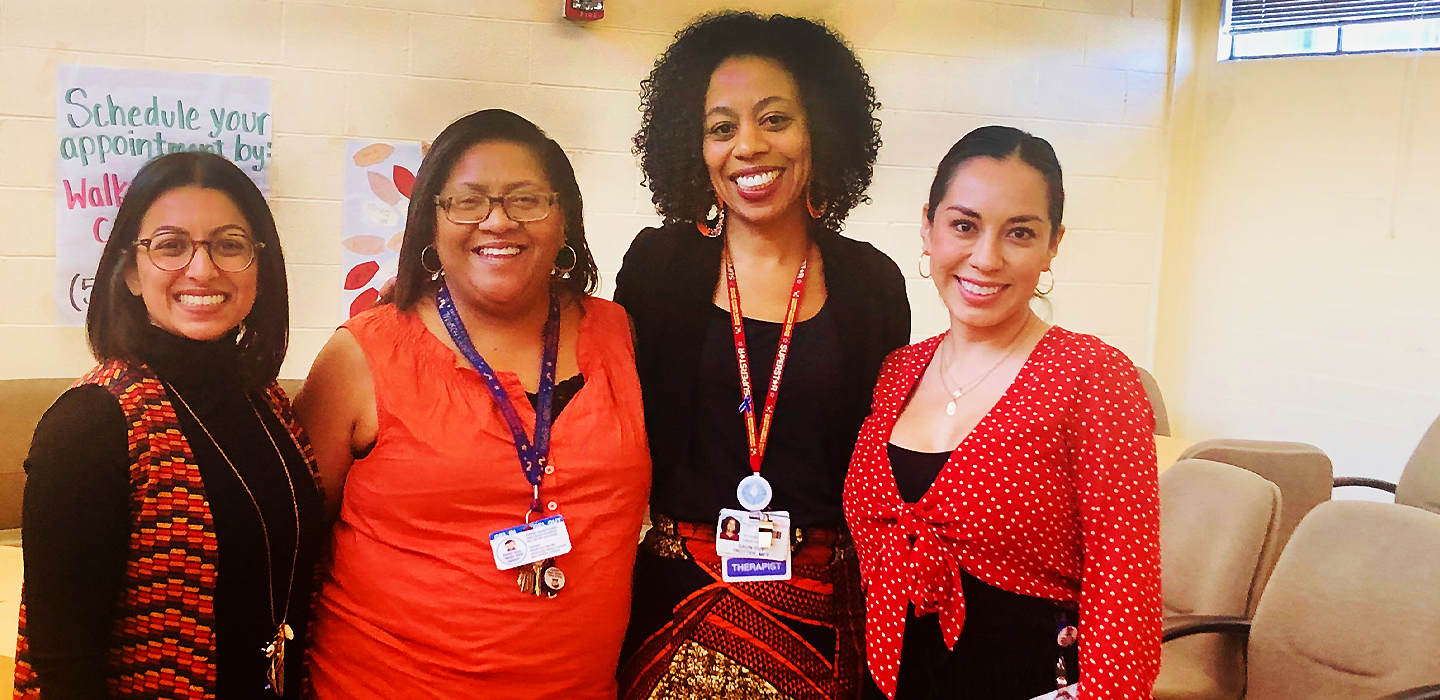Meeting Teens Where They Are
How our school-based clinics are breaking new ground in mental health care

Nina’s grandchildren have complicated health needs. One has autism, and another suffers from depression.
But she never has to worry about getting the care they need. Her grandchildren have access to comprehensive medical and mental health services at UCSF Benioff Children’s Hospital Oakland’s school-based clinics.
The two clinics, located in West Oakland at McClymonds High and East Oakland at Castlemont High, give young people a medical home where they can feel comfortable and safe. These pioneering clinics serve as national models for full-service, school-based primary care centers that meet mental health needs and promote adolescent development and wellness.
“I feel blessed and supported with the medical services from the clinic,” Nina says. “They always get me the right resources and have my grandchildren seen by specialists if that’s what they need.”
What makes these clinics particularly special is the trust between patients and the care team. Nina appreciates that Javay Ross, MD, the clinics’ medical coordinator, is just a phone call away, and that Ross embraces her as a partner in her grandchildren’s medical care.
“I work to build relationships and community with our families, and that creates trust,” Ross says. “In the good and bad, we are always going to be there – it’s a relationship. We’ve made a big impact on patients’ lives just by being there.”
Nina’s grandson with autism has received extensive support to ensure his educational needs are met. Her grandson with depression attends weekly therapy sessions, along with family therapy, and his mental state is much improved.
We are in the communities that need this support the most, communities with deep historic distrust of health care systems.
School health centers provide access to care without barriers related to insurance status. With the help of philanthropic investment, the Resilient Teens program was launched at both school health centers to screen students for adverse childhood experience and connect them with mental health support provided by a medical social worker. Without donor support, this type of comprehensive mental health care would not be accessible for underinsured populations.
During COVID, the clinics’ mental health services have switched primarily to telehealth, and demand has grown, says Saun-Toy Trotter, MFT, program manager for school-based behavioral health.
Trotter says the clinics’ partnerships with the high schools allow them to deliver well-rounded care to teen patients. Clinicians meet weekly with teachers and administrators to discuss the spectrum of students’ needs, from medical issues to food insecurity to concerns about home life or academic progress. Together, they brainstorm ways to help.
“We are in the communities that need this support the most, communities with deep historic distrust of health care systems,” Trotter says. “I am proud that we provide the highest quality medical care, directly connected to research and specialty services.”
In the nearly 15 years she’s been with the clinics, Trotter says she’s been gratified to make a difference not only for young patients but also entire families.
“When a young person starts to get better, their parents often refer siblings or even get help themselves to understand their own trauma,” Trotter says. “So I see a generational change in my work – not just impacting that young person, but the whole family. It’s incredible to see the ripple effect throughout entire communities.”